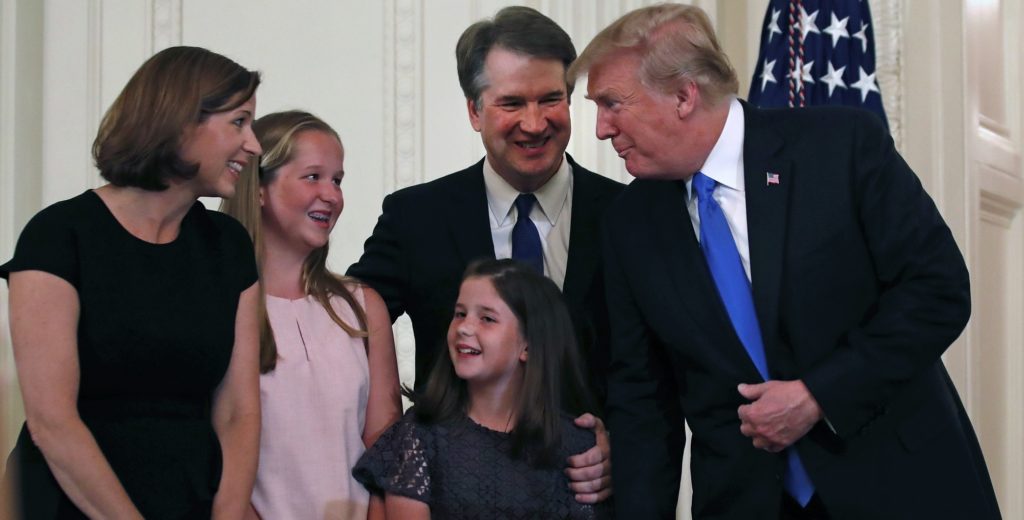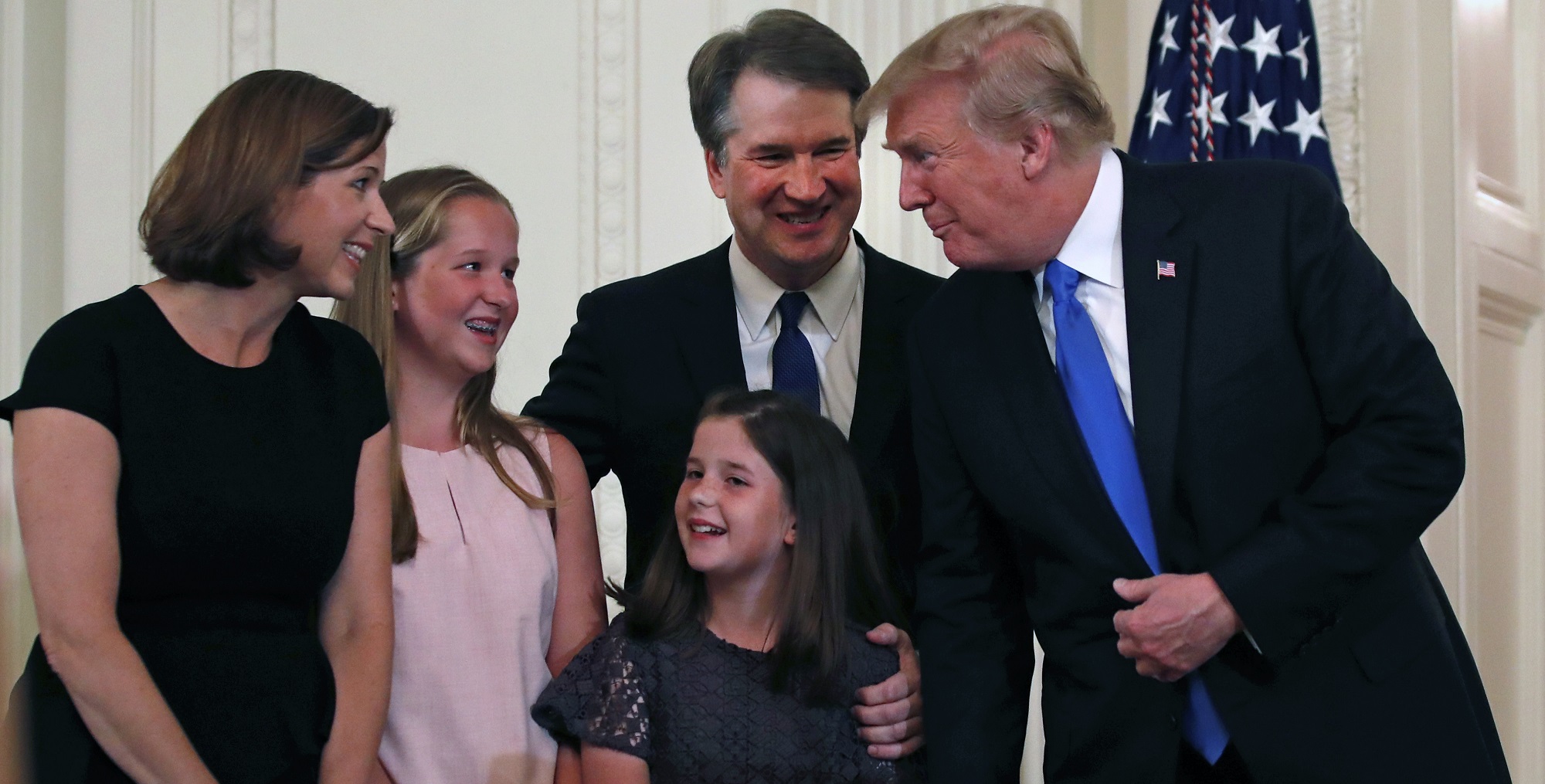
President Trump on Monday selected Judge Brett M. Kavanaugh, a politically connected member of Washington’s conservative legal establishment, to fill Justice Anthony M. Kennedy’s seat on the Supreme Court, setting up an epic confirmation battle and potentially cementing the court’s rightward tilt for a generation.
The nomination of Kavanaugh, 53, a federal appeals court judge, former aide to President George W. Bush, and onetime investigator of President Clinton, was not a surprise, given his conservative record, elite credentials, and deep ties among the Republican legal groups that have advanced conservatives for the federal bench. But it will galvanize Democrats and Republicans in the months before the midterm elections.
Justice Kennedy, who is retiring, held the swing vote in many closely divided cases on such issues as abortion, affirmative action, LGBTQ rights, and the death penalty. Replacing him with a committed conservative, who could potentially serve for decades, will fundamentally alter the balance of the court and put dozens of precedents at risk.
Judge Kavanaugh’s long history of legal opinions, as well as his role in some of the fiercest partisan battles of the last two decades, will give Democrats plenty of ammunition for tough questions. Nearly 20 years ago, working for the independent counsel Kenneth W. Starr, he laid out broad grounds to impeach Clinton, words that Democrats can now seize on to apply to Trump and the Russia investigation.
This time, Democrats are still bitter that Republicans blocked President Obama’s nomination of Judge Merrick B. Garland to fill the last Supreme Court vacancy, created by the death of Justice Antonin Scalia in 2016. Republicans denied Garland a hearing, arguing that the right to name a justice ought to be left to Obama’s successor. Trump chose Justice Neil M. Gorsuch, who has voted much as Justice Scalia had, leaving the court’s ideological dynamic basically intact. Replacing Justice Kennedy will be far more consequential, almost certainly thrusting Chief Justice John G. Roberts Jr., whose voting record has been more conservative than that of Justice Kennedy, into the crucial median position on the court.




